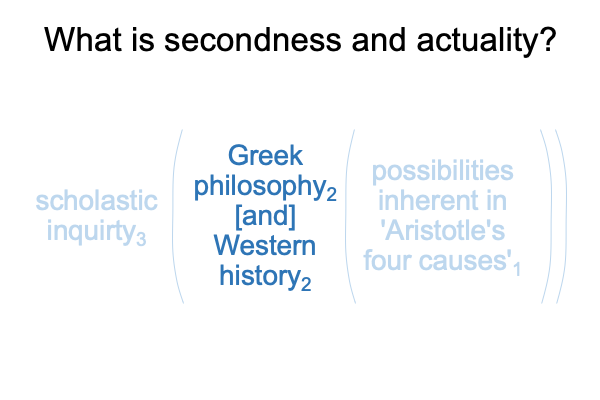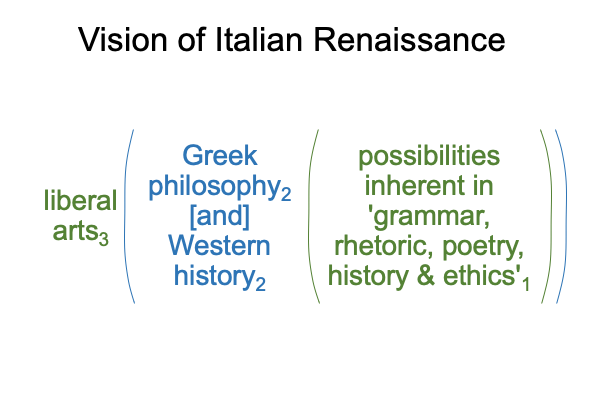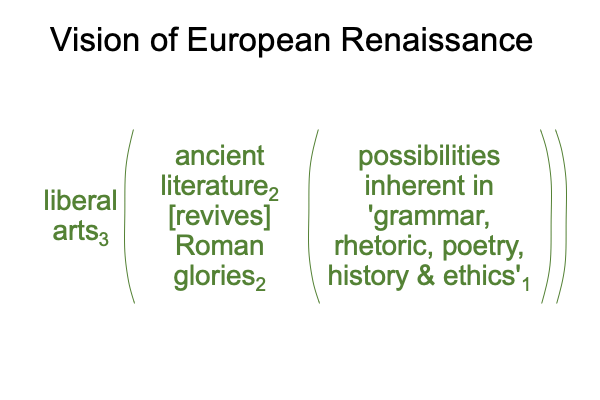0016 What is this [and] between Greek philosophy and Western history?

0017 According to Charles Peirce (7639-7714 U0′), the category of secondness is the realm of actuality. Secondness consists of two contiguous real elements. The nomenclature is one real element [contiguity] other real element.
Here, the contiguity, [and], describes a substance that coheres to the most rudimentary causality, the contiguity between matter and form. Or, should I say, style and form? The nomenclature is Greek philosophy [and] Western history.
0018 The [and] composed by Thomas Aquinas (7025-7074 U0′) takes Aristotle as Greek philosophy and the Bible as the foundation of Western history. Does that sound like matter [and] form or style [and] form? The normal context is scholastic inquiry3 and the potential is understanding1, formatted according to the synthetic and analytic logics of Aristotle’s four causes.
0019 The tradition of Petrarch alters the normal context to the liberal arts3 and the potential to the pentagrammatic disciplines: grammar, rhetoric, poetry, history and ethics1.
Do these alterations elevate style [and] form over matter [and] form?
Do these alterations serve as an alchemic vessel3 and digestive juices1 for the meat of scholastic inquiry2?
Is the contiguity, [and], the same for the scholastics and the Renaissance humanists?

0020 Petrarch and his fellow travelers assert that common folk, traditional Christians, cannot appreciate the lofty metaphysical grammar and moral realities offered by the ancient poets. A Christian knows that the Greek and the Roman pantheons are simply not true. These gods are idols.
But, change the normal context, and let rhetoric, poetry and history work their magic, then newly digested truths become palatable.
These pre-digested morsels are valid in the normal context of the liberal arts3, which excludes all other normal contexts, and thus is universal. Only after digestion by pentagrammatic modes of inquiry1, do the allegorical and figurative meanings of Moses2 turn into the stuff of Renaissance, and later, Enlightenment ideals. Only a nominalist can delineate the pathways from Moses to Socrates and onwards to the Christians and Neoplatonists. Only a nominalist can reveal the mysterious [and], the contiguity between Greek art, philosophy and wisdom and Western history.
0021 [And], the contiguity between ancient Greek and Roman literature and the glories of Rome, takes on the substance of revival.

